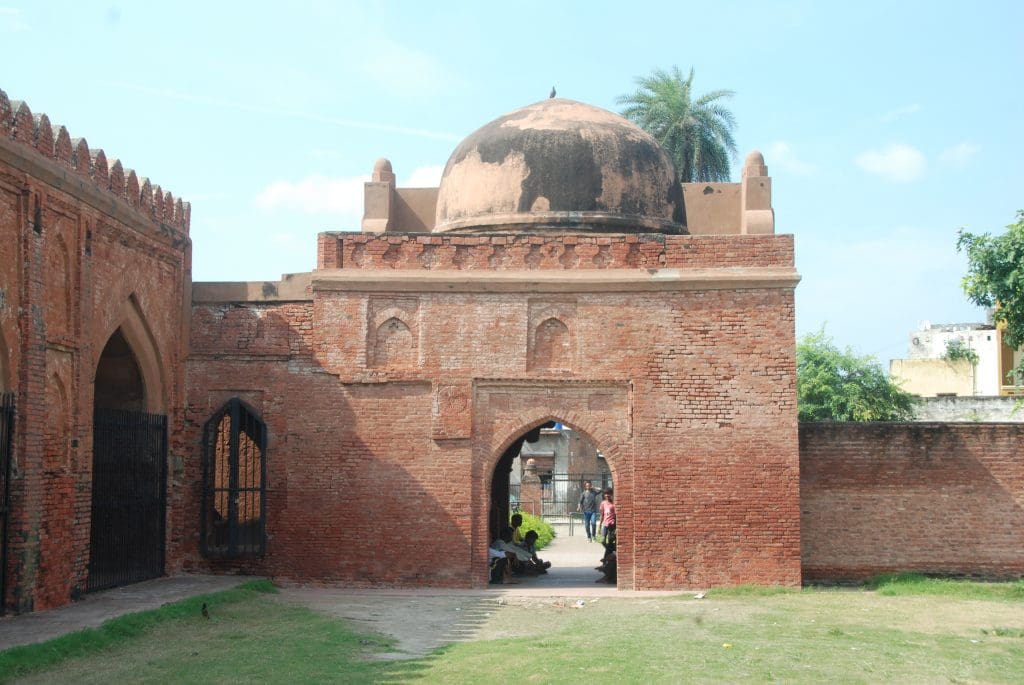
The premises of the Mughal-era mosque Kabuli Bagh Masjid in Haryana’s Panipat have been closed for prayers since 1992 when Babri Masjid was demolished by Hindutva groups.
A mosque like Ayodhya’s Babri, Kabuli Bagh Masjid was built by Mughal ruler Babur in 1527 to commemorate his victory over Sultan Ibrahim Lodhi of the Lodhi dynasty in the first battle of Panipat in 1526. Babur named the mosque after his wife Mussamat Kabuli Begum and it is among the oldest surviving Mughal monuments in India.
Miles apart, the fate of Kabuli Bagh Masjid has been similar to that of the now razed Babri Masjid.
The mosque in Panipat holds memories for the people who live here.
One among them is 80-year-old Badruddin Akhlaq. The octogenarian remembers his childhood when he would come to pray at the mosque with his father. This was long before the mosque was “shuttered to maintain peace and communal harmony in the area” at a time when Babri Masjid was demolished.
“I have stayed in this locality all my life. I grew up praying and playing inside this mosque. It is heartbreaking for me to see it falling apart,” Akhlaq says to Maktoob.
Akhlaq now spends his evenings around this mosque. “The local administration has sealed off the mosque saying it is a heritage structure, but by that logic, they should seal off the Jama Masjid in Delhi too”.
“As this mosque continues to remain closed with each passing day, it sends Badua (curse) to all the people living here,” says Akhlaq.
The architecture of the mosque resembles the royal mosques of Samarkand and Ferghana. Inscriptions on the walls of the iconic structure mention Babur and date back to the year 1527. The mosque’s front face is made up of two wings, one of which lies partially collapsed, and topped by a hemispherical tomb supported by nine bays. Its front face features two wings, one of which is partially collapsed, and a hemispherical tomb supported by nine bays.
Nearly 500 years after its construction, the mosque stands in a miserable shape; completely neglected by the authorities and desecrated by the growing urban sprawl. The mosque’s complex is now surrounded by filthy lanes, sewer canals, and piles of garbage, quite contrary to the sprawling forest it used to be surrounded by just 40 years ago.
“The mosque was surrounded by forests in my childhood,” says Ghanshyam Singh, another local who grew up in a neighborhood adjacent to the mosque.
When Singh returned home after his 15 years of education, he was shocked to see houses and factories built around the mosque. “Earlier one could see the mosque from miles away. Now it has disappeared in this congested colony,” he says.
The eastward-facing domes of the mosque lie semi-collapsed. While there are no authentic accounts to trace the timing or cause of the damage, locals suggest that some parts of the mosque were desecrated during the Indian rebellion of 1857 or were damaged by heavy rainfall. Some accounts even suggest that the initial damage took place after the partition in 1947 during communal riots.
The mosque is now guarded by 57-year-old Sarwar Singh who says the premises of the mosque has become the hub for drug addicts and miscreants.
Namaz has been a contentious issue in this mosque. According to locals, the local administration and the Archaeological Survey of India have always maintained that offering namaz inside the mosque is prohibited.
However, the issue came to light during the demolition of Babri Masjid in 1992, when the local RSS leaders wanted to demolish the mosque as well. The administration feared an outbreak of riots. As a security measure, the inner courtyard of the mosque was sealed and it remains closed to date.
When contacted, ASI officials refused to comment upon the matter.



